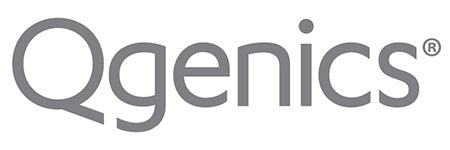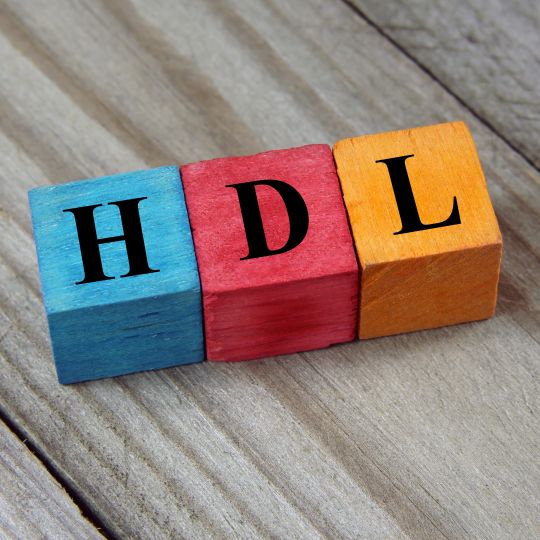What is Cholesterol?
Cholesterol is part lipid (fat like molecule) and part protein found in the blood. Cholesterol travels through the blood on proteins called lipoproteins.
Why is Some Cholesterol Considered “Good” and Some “Bad”?
Two types of lipoproteins carry cholesterol throughout the body:
- LDL (low-density lipoprotein), sometimes called “bad” cholesterol, makes up most of your body’s cholesterol. High levels of LDL cholesterol raise your risk for heart disease and stroke.
When your body has too much LDL cholesterol, the LDL cholesterol can build up on the walls of your blood vessels. This buildup is called “plaque.” As your blood vessels build up plaque over time the insides of the vessels narrow. This narrowing blocks blood flow to and from your heart and other organs. When blood flow to the heart is blocked, it can cause angina (chest pain) or a heart attack.
- HDL (high-density lipoprotein), or “good” cholesterol, absorbs cholesterol and carries it back to the liver. The liver then flushes it from the body. High levels of HDL cholesterol can lower your risk for heart disease and stroke.
Abnormal cholesterol levels are a factor in Metabolic Syndrome, along with high blood sugar, high blood triglycerides, and excess fat around the waist.
Because HDL cholesterol can remove extra cholesterol from the blood and from deposits of lipid-containing plaques on the innermost layer of the wall of an artery and transport it back to the liver for excretion or re-utilization, it is important to have your HDL cholesterol in a normal range.
A “good” HDL cholesterol level of 40 mg/dL or less for a male and 50 mg/dL or less for a female is considered abnormal. Harvard Medical Publishing states, “HDL levels lower than 40 milligrams per deciliter (mg/dL) are considered worrisome, and levels higher than 60 mg/dL are considered excellent.
“One recent study that examined high levels of HDL reported the benefits extended until 90 mg/dL in men, but then leveled off, which suggests no further benefit even with higher levels. A man’s HDL level is predominantly determined by genetics, or inherited factors. Moderate-intensity exercise, three to four times a week, is an important mechanism to raise HDL with the bonus of other health benefits.”
Low “good” HDL cholesterol is a result of a metabolic disorder – your cells are not functioning the way they should.
5 Things That May Help Boost Your “Good” Cholesterol
WebMD suggests the following to support your HDL cholesterol being in a normal range:
- Get active. Physical activity can boost your HDL level. Get at least 30 minutes a day of moderate activity, most days of the week.
- Lose extra weight. If you’re overweight, losing extra pounds can help raise your HDL levels, as well as cut your LDL “bad” cholesterol levels.
- Choose better fats. The healthier choices are monounsaturated and polyunsaturated fats. You’ll find these in plants, nuts, and fish like salmon or tuna. And, like everything you eat, keep your portion sizes small. Fats pack a lot of calories in small amounts.
- Alcohol in moderation. Drinking moderate amounts of alcohol is linked to higher HDL levels. If you don’t drink now, check with your doctor before you start, since alcohol has some risks not related to cholesterol.
- Stop smoking. Kicking the cigarette habit can raise your HDL level.
Supplementation Can Support Optimum HDL Cholesterol Levels
It’s possible to optimize your metabolism at the cellular level with natural ingredients. Optimal metabolism will support normal cholesterol levels.
Rice bran has been shown to reduce total plasma cholesterol and triglycerides while increasing HDL “good” cholesterol levels.
Rice bran is just one of the ingredients in the natural, plant-based supplement, Cardio Advance. Cardio Advance contains other natural ingredients to support normal cholesterol levels:
Chromium Picolinate
Chromium Picolinate improves Carbohydrate and Lipid Metabolism.
Folic Acid (Vitamin B9)
Folic acid has the potential to improve heart health by controlling the cholesterol levels in the heart.
Grape Seed Extract (GSE)
Grape Seed Extract may support normal cholesterol levels.
Malic acid
Malic acid may improve high cholesterol.
Resveratrol
Resveratrol may help lower LDL cholesterol because of its antioxidant properties.
Vitamin B12
Vitamin B12 can help normalize cholesterol levels.
Vitamin E
Vitamin E can help regulate cholesterol.
When choosing supplements, aim to find supplements that provide nutrition from whole food sources.

